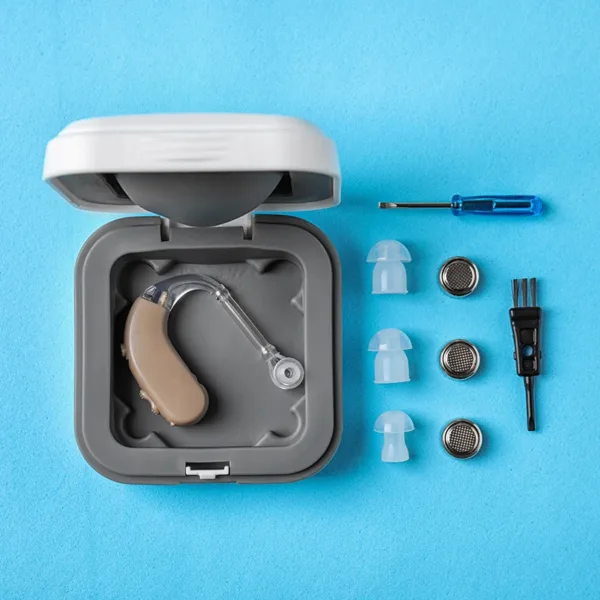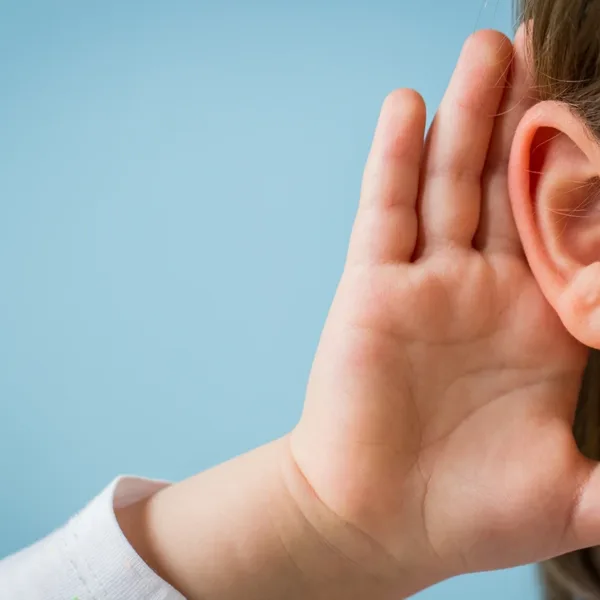
Some health conditions come on very slowly, and we may not recognize the changes over such a long period of time. Especially, when it comes to a loss of functionality. We find ourselves adapting without realizing it. Hearing loss can be one of those things. Understanding how to recognize the signs and symptoms of hearing loss can help prevent further progression and can make all the difference in maintaining a better quality of life. Hearing all the amazing nuances in the soundscape of your life and more easily navigating important communications is worth protecting and monitoring. Some of the causes of hearing loss can be addressed to prevent further loss, and, in most cases, hearing can be brought back to normal levels with hearing aids.
Three Types of Hearing Loss
We’ll start with defining the three types of hearing loss. Treatment for each category of hearing loss will vary, so determining the type affecting your ability to hear will be the first priority of a hearing healthcare provider.
Sensorineural Hearing Loss
Sensorineural Hearing Loss (SNHL) is the most common type of hearing loss, and it’s more prevalent in people over 65. This condition is a result of damage to the mechanisms in your ear that receive sounds and send them as impulses to the brain. In other words, this type of hearing loss is caused by damage in your inner ear, where your auditory nerve is, or damage to the part of your brain that receives or interprets that signal the nerve is sending. The causes of sensorineural hearing loss are many, with the most common being age, injury, medication side effect (ototoxicity), and exposure to loud noises [Noise-Induced Hearing Loss (NIHL)].
Conductive Hearing Loss
With conductive hearing loss, your ability to hear is impacted by some sort of obstruction. Sounds are being blocked to some degree, before they are reaching your inner ear. The obstruction could be located anywhere from your outer ear to the middle of your ear. Common causes of conductive hearing loss are a fluid build-up in the ear caused by a virus or infection, cerumen (ear wax) impaction, tumors or a malformation, or inflammation of the ear itself. Unlike sensorineural hearing loss, this condition can be temporary, or treated with surgery, or medication.
Mixed Hearing Loss
The third type is simply a combination of both sensorineural and conductive hearing loss. With mixed hearing loss you could have a build-up of ear wax, but also have some NIHL. Similarly, you may simply have congestion from a virus temporarily affecting your hearing, but notice that your hearing hasn’t fully returned long after the other symptoms have faded. This could indicate that there was more than one thing going on in your ears.
No hearing loss can be properly addressed without first knowing which main type it falls under.
Common Signs and Symptoms that Indicate Hearing Loss
Everyone’s hearing quality is different. It’s important to be aware of the warning signs that yours is on the decline, because the sooner it’s detected, the sooner it can be treated. Remember, some types can be repaired, and others can be compensated for with hearing aids. Regardless of the type however, getting back to fully engaging with all the sounds around you will expand your enjoyment of life.
Whether it’s you, or someone close to you who notices the signs first, these are the most common symptoms of hearing loss.
You Often Hear Someone Speak but Cannot Understand All the Words
We have all had this experience from time to time. Some words are more unique than others and some people might speak softly or quickly, and we miss it. However, if you find that you are often grappling with hearing all the words in a sentence, or are not sure you caught someone’s name correctly, this could be a sign that your hearing is compromised. It’s often the consonants that give the trouble, and you may find yourself filling in the blanks, guessing the name “Laurie,” when it was actually “Rory,” for example.
The TV Volume Has Become a Frequent Household Topic
If the TV volume that helps you to hear your show or movie is so loud that people find it hard to talk over, or complain that it’s too loud, it’s likely you have some hearing loss. Likewise, if you have been using closed captioning on a regular basis because you’re not able to hear the dialog, it may be a sign that your ability to hear has diminished.
You Have Difficulty Understanding Conversations in Noisy Rooms
Trying to hear a conversation in a noisy room is certainly harder than in a quiet one. Your ears and brain have to work harder to filter out the extraneous noise and pick up the immediate conversation. The question here is, do you feel that you’re having a harder time with this, and more often than others? Trouble understanding people with even mild background noise is often one of the first signs of hearing loss.
You Find It Harder to Hear Women and Children
Hearing loss often begins with higher frequency sounds. Women and children’s voices typically fall in these higher registers. You might notice that you have a harder time hearing their voices in particular.
It Often Seems Like People Around You Are Mumbling
If you’re starting to wonder why more people mumble these days, it might, instead, be your hearing. Do people sound like they’re speaking through a mask, long after their masks have been abandoned? This issue relates back to struggling to clearly distinguish consonants and vowel sounds; to those experiencing hearing loss, this could be mistaken for mumbling.
You Have Difficulty Hearing on the Phone
Phone conversation can be difficult, when there is considerable noise going on around you, or near the person with whom you are speaking. With a phone conversation, you also can’t read their lips, which is something most of us do, to some degree, whether we realize it or not.
However, if you find you can’t hear well on the phone when all of the following are true, you might be experiencing hearing loss:
- Volume is turned up over 60%
- It happens with every phone conversation, not just occasionally
- There is no ambient noise on either end
You Have Begun Avoiding Social Situations
Not being able to follow conversations can be exhausting, frustrating, and isolating. And sometimes, it’s embarrassing to keep asking people to repeat what they’re saying. If you find you’re turning down invitations and avoiding large gatherings more, hearing loss might be the real reason.
You Have Ringing in Your Ears
Temporary ringing in the ears (tinnitus) happens at some point for many of us. Enough so that everyone can understand what the phrase means. If your tinnitus is not temporary, or happens with increasing frequency, you should contact your hearing healthcare provider to investigate further. Especially when it comes to ototoxicity, you should report any changes in your hearing immediately to prevent further progression.
Dizziness or New Balance Issues
Some types of hearing loss can also cause dizziness or affect your balance. Your inner ear helps your body naturally maintain balance (equilibrium). If you are experiencing dizziness, having difficulty walking in a straight line, or find yourself learning to one side, it is likely that your inner ear is the cause. The same damage that could affect your equilibrium could also be affecting your hearing, and changes in your balance may be more noticeable than hearing loss.
Others Tell You That You May Have Hearing Loss
Sometimes, it’s the people around you who notice your hearing loss before you do, or they are the first to voice this suspicion. As the chance of hearing loss increases with age, it can be hard to admit that we are experiencing symptoms associated with getting older. Thankfully, the days of stereotypical large hearing aids are becoming a thing of the past. Many modern hearing devices are incredibly discrete, and comfortable to wear all day. Perhaps more of your friends than you realized wear them, because they often go unnoticed.
Monitor Your Hearing with Regular Hearing Exams
Knowing the signs and symptoms of hearing loss early on is important. If you have identified one or more signs that your hearing has diminished, the best next step is to schedule a hearing exam. If you are 60 years of age or older, having regular hearing exams can ensure any changes in your hearing are caught, diagnosed, and treated as soon as possible.
The hearing healthcare providers at Audibel want to give you the Joy of Hearing. They want you to enjoy the sound of the wind chimes, the laughter of children playing in the park, the sweet nothings whispered by your loved one, the nuances in your favorite music, and even the crickets and the birds singing. With the help of hearing aids, you won’t have to struggle to hear the importance conversations throughout your day, and will be able to watch your favorite television shows and movies at a volume that is comfortable for those watching with you. After getting a hearing aid, many patients report they had no idea how much they had been missing. Contact one of our conveniently located offices today, to ensure you don’t miss out on all the joys of hearing.







Have a question or Comment?